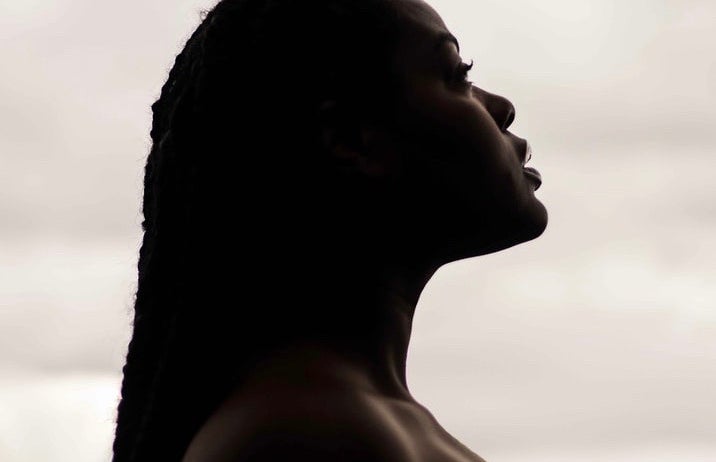My fellow black women probably don’t need a rundown of what it means or what it feels like to be micro aggressed. However, there are those who may not even recognize microaggressions in their life or those who don’t realize that what they are doing is a microaggression. This also may just come off as a vent session. Either way, the conversation needs to be had.
Vox describes microaggressions as, “…more than just insults, insensitive comments, or generalized jerky behavior.”
Microaggressions are very swept-under-the-rug altercations and emotions, especially for the person who was micro aggressed. I think it’s especially tricky for black women to acknowledge when we’ve been micro aggressed because we fear falling into the “angry black woman” trope. So with that being said, let’s dive in.
1.) They mispronounce or misattribute your name.
This one is funny to me personally. If I can pronounce Phoebe (which is no offense to any Phoebe’s out there- but literally makes no sense phonetically), then I don’t see why I should keep re-explaining to you how to pronounce “Muzabibu,” “Atatiana,” or “LaTonya,” when it looks exactly like it sounds. Sure, getting names wrong the first couple of times is valid. But if I already taught you proper pronunciation, there’s no reason to keep saying my name wrong. That’s a choice. There’s also the experience of having your name mixed up with the only other black women you work with, whether it’s in the workplace, in a club, or in a classroom. You’re telling me there are only two black women here, me included, with completely different hairstyles, personalities, and overall appearance–and you still mixed us up on more than one occasion? Especially at predominantly white institutions, where we quite literally stand out, that’s a choice.
2.) They’re surprised when you do something that exhibits intellect.
I remember I was told to read aloud once in my freshman geography class, and my teacher thought it was significant that I could read aloud so well, and made a point about it to the class aloud after I had read. His statement was based on the fact that in his brain because I was a black student and an immigrant student, he automatically assumed I would have difficulty reading my English textbook. I guess he expected me to stutter, so it was quite a surprise to him that I read so fluently. In other cases, for my black women who come from immigrant families, we have to take ESL classes in our earlier childhood, even though oftentimes some of us don’t really need it. I was taken out of my ESL class (thankfully) because at some point, my teacher was just like, “I don’t know what you’re doing here. I don’t think you need to be here at all.”
3.) They want to touch your hair.
Should I even speak? This one can be a bit tricky. But there’s a TikTok of this woman in a bathroom and a white woman comes up to her and asks if she can touch her hair. She said no right off the bat, and the woman took slight offense to it. There should never be an issue if a random person walks up to you and wants to touch you and you say no. Honestly sometimes it’s rare if they even ask. Let’s be honest, if I started coming up to random white women asking to touch their hair it would be really out of place, and they would probably be like “Um… I guess?” We know that our gravity-defying curls are mystifying to some, but that doesn’t give you a pass to go around touching random black women’s hair. You can tell me my hair looks nice, or admire it without touching it. We just want to go about our days and not feel like a walking exhibit at a zoo. Sometimes we don’t even allow our black boyfriends to touch our hair, because we just got it done. It’s about boundaries babe.
4.) They make you a spokesperson for all black folks.
Let me start this off by saying, Black people are not a monolith. In classrooms when we begin talking about black history, and all the white kids look at you to chime in, unfortunately, is a microaggression, because to an extent, sometimes our teachers and professors do this also. Maybe I just don’t want to speak that day, and what makes you think what I have to say aligns with the experiences and traumas we’re discussing in this class? It’s like when companies say they’re “Illuminating black voices” and they show all films that depict black trauma and black suffering. Why is it easy to presume that I have experienced every aspect that comes with black trauma? Why would you want that for me, anyway? Why can’t you imagine me as a black woman not having encountered certain traumatic experiences? These presumptions prevent others from seeing us as individuals, and only as our marginalized groups.
5.)They compliment you by being shocked that you can do or emulate something because you’re black.
Microaggressions also present themselves in the form of back-handed compliments. “You’re so pretty for a black girl.” “You have such nice hair for a black girl.” “Are you sure you’re not mixed with anything else?” “You speak such good English,” and I’ve gotten this a lot, “you’re boujee.” Notice how “boujee” is a term largely attributed to black women. This is the same reason it’s so hard to imagine black women living in luxury. Like no, I am all for that. I am all for experiencing things and doing things that align with what a non-black woman (more specifically white women) would be able to do. The idea that it’s impossible or the fact that it’s become status quo that we can’t have or emulate a certain lifestyle because we’re black is tacky as hell. This is a large part of the reason why we code-switch so well. A compliment is a compliment, adding any derogatory undertones to them pertaining to what you think black women experience places them in a box and is a microaggression.
In conclusion, it’s a choice, don’t touch my hair, yes I speak proper English, and no I’m not the other black girl in this room. Major shoutout to Rolla Muzabibu for helping me bring about some ideas presented in this piece.




